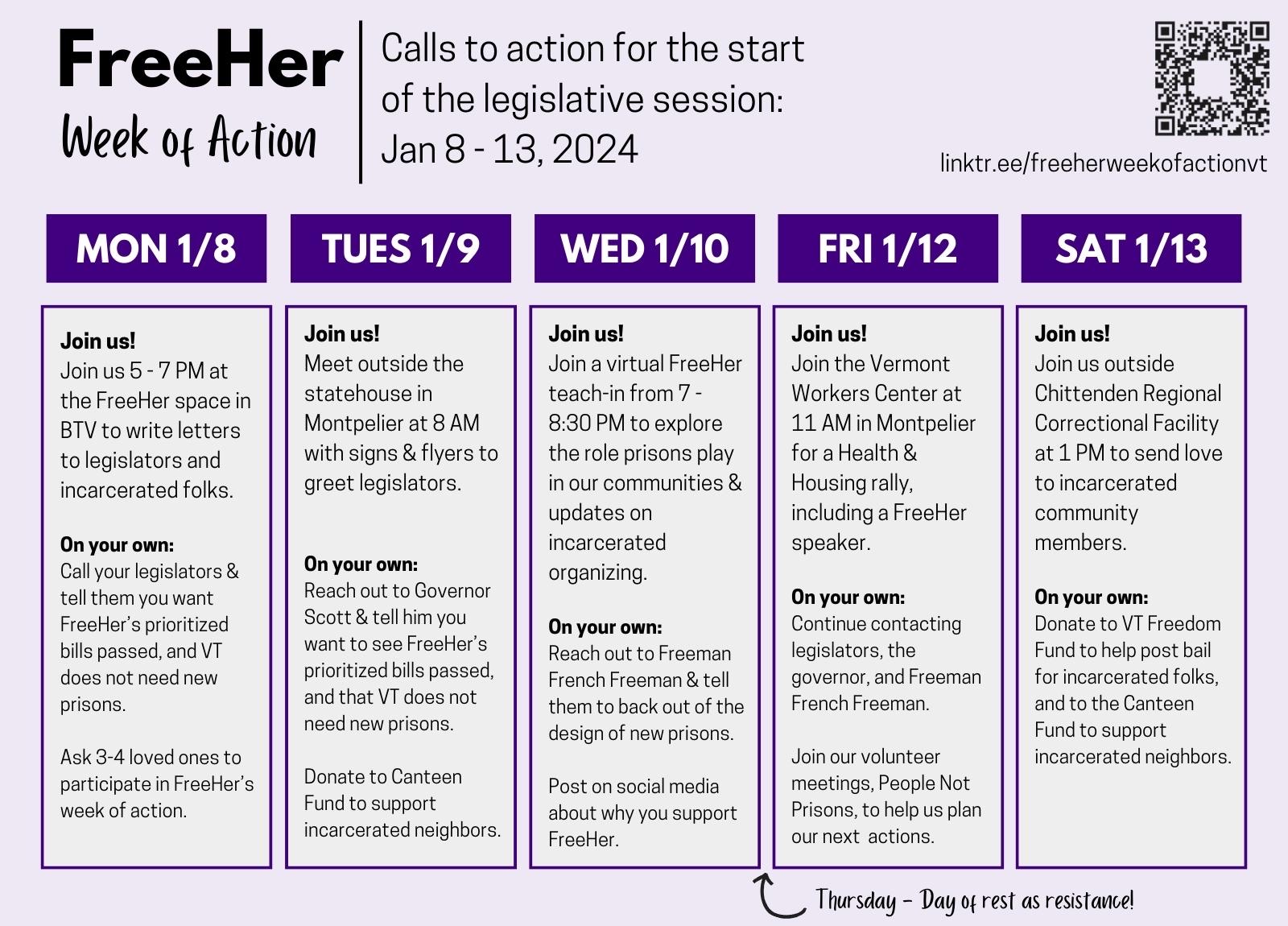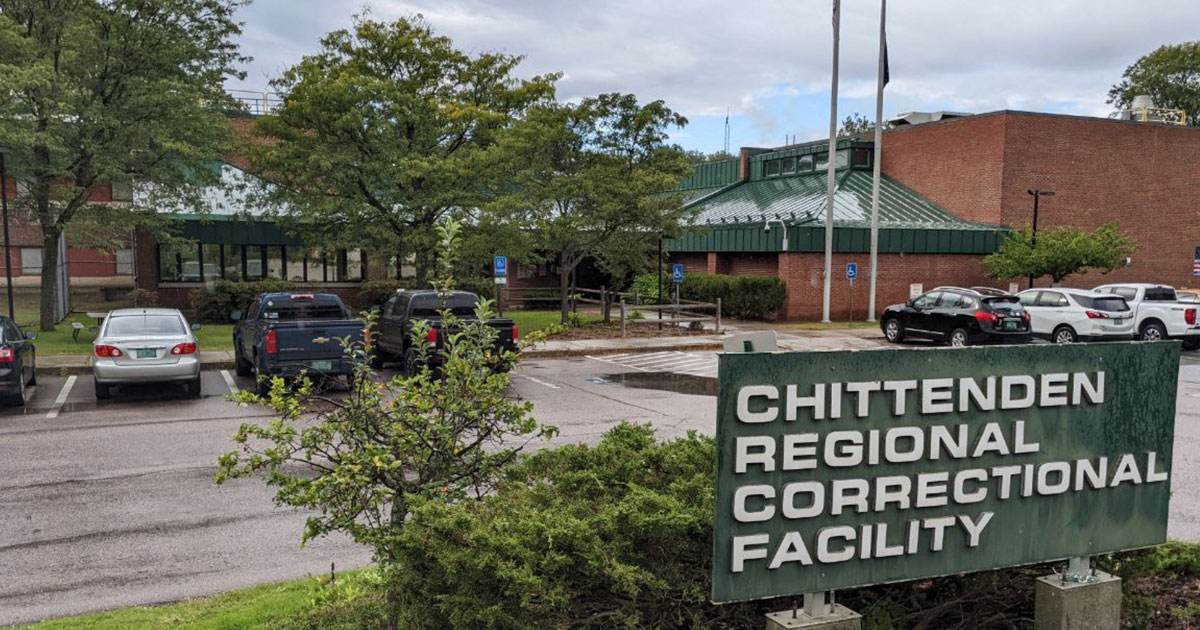Starting Monday, FreeHer Vermont is holding a week of action to pressure Vermont officials to abandon plans for constructing new prisons in the state while reinstating funding for constructing new schools.
Given what will likely be a more constrained state budget compared with previous years — one-time federal COVID-related funds are mostly gone, and healthcare costs have risen — the question of spending priorities has gained greater urgency.

As of January, the Vermont Department of Corrections (DOC) jail population stood at 1,343. (More than a third of those, 497, are “detained,” meaning they are being held without or prior to being sentenced, for example, if the person is held pre-trial without bail or is unable to afford bail). Using DOC’s 2023 calculations, this means Vermont’s current rate of incarceration costs the state over $120 million annually.
Incarcerated women are currently housed at the Chittenden Regional Correctional Facility (CRCF), with a current population of 118, sixty-five of whom are being detained without or prior to being sentenced. The fifty-year-old facility has been rocked by a series of scandals involving unsafe living conditions and inhumane treatment. The Vermont Agency of Administration estimated replacing CRCF at $71 million but admitted inflation could see that price tag rise. The cost of building materials and construction labor has skyrocketed since the start of the pandemic.
The future of CRCF is part of a larger question of the future of all sites of incarceration being considered by the state. A comprehensive proposal commissioned by the state government and provided by multinational architecture firm HOK in 2021 estimated over $250 million to rearrange, consolidate, and modernize buildings.
This process is running parallel to an ongoing public school facilities crisis. In 2021, the state ordered the Vermont Agency of Education to calculate the prospects for bringing all public schools up to a common baseline standard of quality, including completing backlogs of deferred maintenance and replacing buildings at and beyond the end of their operational life. The latest estimate puts school construction costs across the state at $300 million per year for the next two decades. As it stands now, such a burden would be borne by districts themselves: state-level construction aid for public schools was suspended in 2008 and has not been restarted since.
“I see things like [the state of] Vermont hasn’t funded new school construction since George W. Bush was in office, yet we have $100 million to cage 100 women, not even all of whom are sentenced? It just doesn’t make sense to me,” said Jayna Ahsaf.
Ahsaf is the lead organizer for FreeHer Vermont, a campaign of the National Council for Incarcerated and Formerly Incarcerated Women and Girls. She said the state budget should be a reflection of Vermont’s priorities. “It should be clear as a legislature, your job is to make sure our needs are met as a community,” she said, “not that we’re controlled by police and prisons.”
Instead of spending public dollars on new and expanded prisons, FreeHer is calling for investments in social infrastructure like housing and schools, improvements that would have positive downstream effects on crime.
After FreeHer spent much of 2023 strengthening ties with other movements and educating the public, organizers are stepping up their mobilization and advocacy. Their primary ask of legislators this session is the passage of H.445, a bill that would institute a five-year moratorium on new prison construction while lifting the suspension of state support for public school construction and renovation.
When a state embarks on a construction plan, there are profits to be made. So as part of the campaign, FreeHer Vermont is applying pressure on private firms associated with the prison construction project. Currently, they are encouraging Vermonters to contact Freeman French Freeman, a Burlington-based architectural firm that joined the 2021 HOK proposal, and tell them to exit the project.
FreeHer Vermont has long drawn the link between schools and prisons and the conflicting state priorities between the two. In November, FreeHer, the Education Justice Coalition of Vermont, and the Peace & Justice Center held a joint rally in front of CRCF, followed by a panel discussion highlighting the need to shift funding from jails to schools.
Patrick is a writer and organizer based in northern Vermont. He is on the editorial collective for The Rake Vermont.



